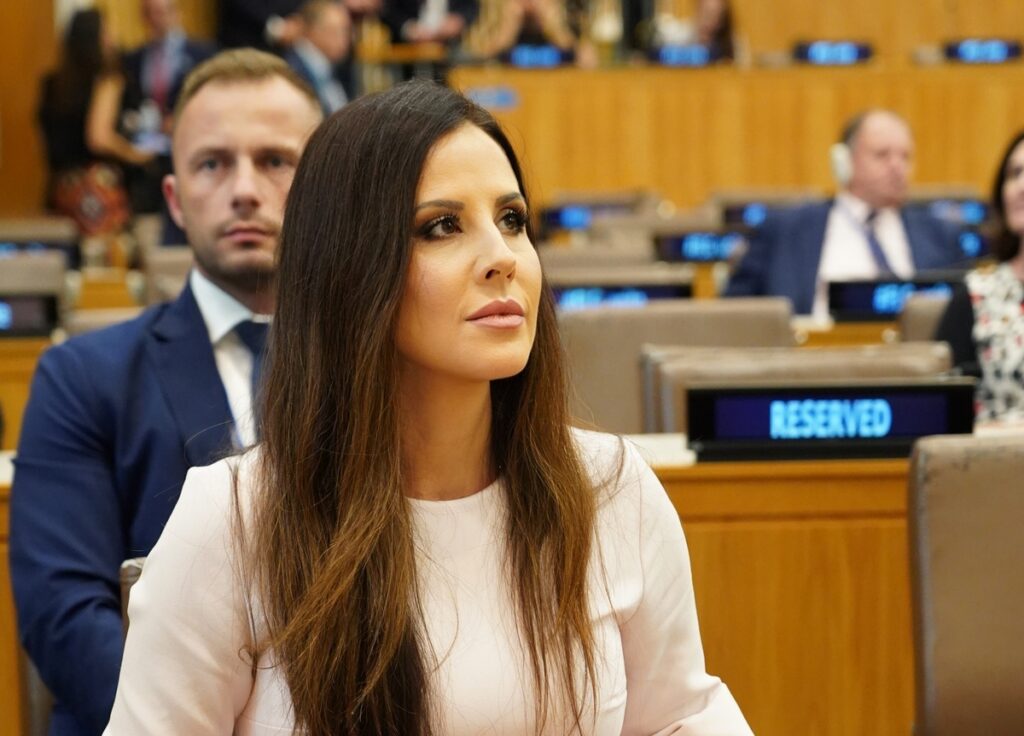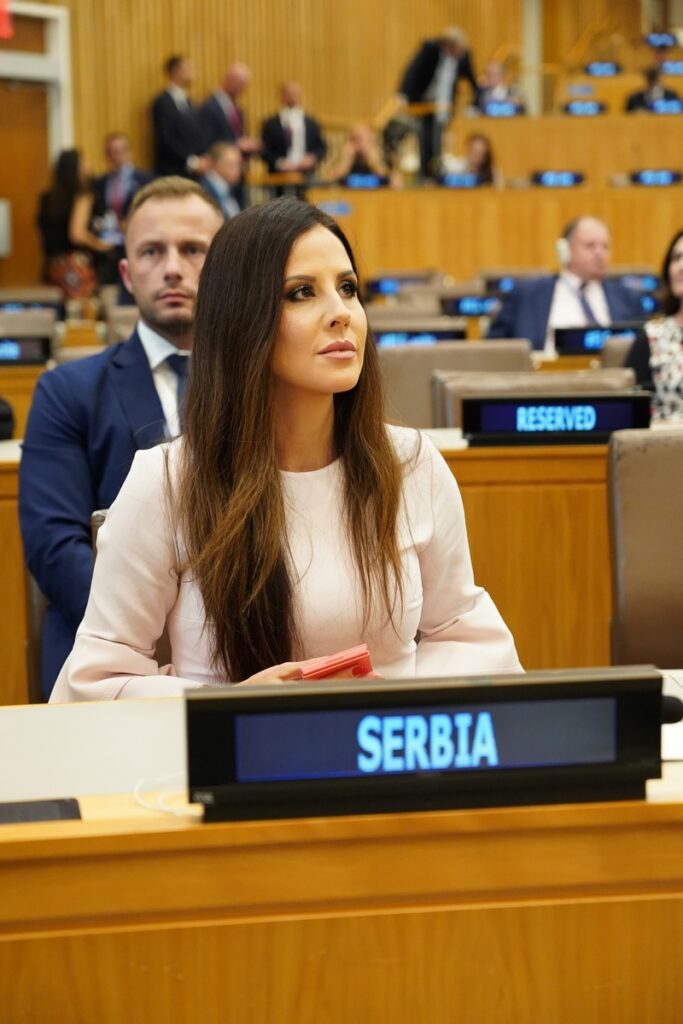Serbia’s First Lady calls for global solidarity in supporting children with severe and rare diseases

On the sidelines of the 80th session of the United Nations General Assembly in New York, a high-level informal event dedicated to the global fight to support children suffering from cancer and other severe illnesses was held at the end of September. Hosted by the Republic of Uzbekistan in cooperation with the World Health Organization, the gathering brought together state representatives, international organisations and public health experts. Speaking on behalf of Serbia, First Lady Tamara Vučić delivered a powerful message about urgency, responsibility and the profound moral duty owed to the world’s most vulnerable children.
Let us stand by the children in our thoughts… and in our actions, every day
“Helping children suffering from cancer and other severe diseases is an issue that surpasses all challenges and rises above all politics in its importance and significance,” Vučić stated, adding that “it is my human duty which deeply inspires me to speak about our shared human responsibility to, at the very core, be compassionate towards those who need us the most.”
She emphasised that, in dealing with the gravest illnesses, time is a decisive factor. “In cases of such diseases, time is limited and the whole society must take concrete action to help children truly,” she said.
Turning to prevention, the First Lady highlighted the importance of education and early diagnosis. “Prevention is, of course, the goal. And that is why I would like to share an important campaign that is being implemented in Serbia on the human papillomavirus, HPV, which in 99 per cent of cases leads to cervical cancer. This campaign is being successfully carried out in Serbia, and since 2022, the HPV vaccine has been available in primary healthcare centres. The second line of defence, so to speak, is early diagnosis as a key factor in improving survival rates. Here, the role of every parent is crucial, as well as the role of medical professionals who are sufficiently trained to recognise, refer and advise.”

She also underlined Serbia’s progress in providing innovative therapies for rare diseases. “Perhaps the most sensitive aspect, in both human and humanitarian terms, is reducing the suffering of children through access to innovative and state-of-the-art medicines and therapies,” Vučić said. “Serbia has, for example, managed to secure for its citizens the most expensive medicine in the world – Zolgensma – used to treat the rare disease spinal muscular atrophy. This medicine costs 2.5 million euros per patient. We are also among the first three countries in Europe to provide a new gene therapy for children suffering from epidermolysis bullosa, another very rare disease known as the ‘butterfly children’ condition. And this therapy, again, is extremely costly.”
Tamara Vučić
First Lady of the Republic of Serbia
Tamara Vučić, a diplomat by training and adviser at the Ministry of Foreign Affairs of Serbia, has focused much of her public engagement on health diplomacy, child protection, and rare diseases. As First Lady, she actively supports initiatives aimed at improving access to innovative therapies and strengthening international cooperation in paediatric healthcare.
Her recent activities include participation at high-level UN events dedicated to children suffering from cancer and rare diseases, where she advocates global solidarity and fair access to life-saving treatments. She promotes HPV vaccination in Serbia, emphasising the importance of prevention and early diagnosis, and supports programmes assisting children with the rare “butterfly children” condition (epidermolysis bullosa).
Through her humanitarian and diplomatic work, she highlights Serbia’s efforts to secure cutting-edge therapies — including some of the world’s most advanced and expensive treatments — and consistently calls for stronger partnerships between governments, medical institutions and the international community.
In the closing part of her address, the First Lady called for a united global approach, stressing that no country, regardless of its economic strength, can shoulder this burden alone. “We must unite around a goal that requires unconditional global solidarity, partnership and cooperation. Let us all work together to encourage major pharmaceutical companies to show their humanity and social responsibility. Let us stand by the children in our thoughts, in our good wishes and intentions… in our actions, every day, and spread the idea of kindness and compassion in our surroundings. Our small efforts can change the world.”
With this speech, Serbia once again positioned itself as a country that, despite its limitations, strives to provide not only treatment for the most vulnerable but also hope.